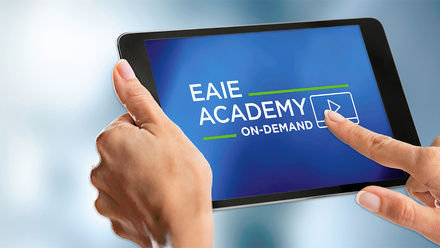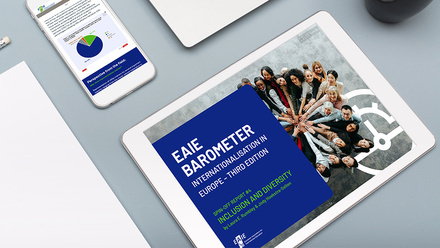Research snapshot: ICC practices in the EMI classroom

Real examples of ICC practices in the EMI classroom
Publication date: 31 October 2023
It is widely assumed that intercultural communicative competence (ICC) is developed effortlessly in the EMI classroom through English language use and contact with international students. However, EMI lecturers, whose primary focus is to teach content, are often unaware of how to include ICC in pedagogical practice. Therefore, this study examines ICC in the EMI classroom and offers real examples of ICC practices.
The data for this qualitative study comes from the corpus collected during the Erasmus+ TAEC project. Examples of ICC practices, such as teacher roles in the EMI classroom and the development of language awareness, were identified using an observational schedule comprising 22 categories in course design and teaching methods. The examples are intended to foster good teaching practice and ICC development for students of diverse backgrounds. The authors have a background in delivering ICC training to staff and students in universities offering EMI courses in Europe. This research could benefit all HEI academic staff, policy-makers and administrators in internationalised institutions.
This study provides practical, authentic examples of intercultural teaching competencies from which other teachers can learn and adapt to their own context.
About the authors
Key findings from the research:
- When teaching staff have a combination of both pedagogical and intercultural skills, they can facilitate interculturally sensitive classrooms that promote interaction and collaboration. Understanding local language and culture may be necessary to effectively communicate, navigate nuances, and avoid cultural and linguistic misunderstandings. To avoid faux pas and stereotyping, lecturers should be culturally aware and critically examine their positions and claims. While this does not seem to be a problem with explicit humour, the hidden, implicit, or taken-for-granted assumptions or reasoning may be culturally inappropriate.
- Although educational cultures impact student and lecturer behaviour, expectations, and ICC, the EMI teaching practices observed at one university were not necessarily the same as or different from those at another institution, as much depends on the subject, lecturers, students, and their respective educational experiences and personal histories. Lecturers and students are active agents in EMI, and their behaviour can only partially be attributed to the environment. We found complex and diverse practices, raising questions about the applicability of recommendations in other contexts. Specific ICC situations and pedagogies are negotiated, thus contextually appropriate, but may not be equally effective in a different classroom.








